Following in the tradition of Connor Barwin and Malcolm Jenkins, former All-Pro wide receiver and current Eagles broadcaster Mike Quick will write weekly for The Citizen this season, analyzing what the Birds will have to do each week on the field to emerge victorious. We’ve paired Quick with Professor Richardson Dilworth, Director of Drexel University’s Center for Public Policy, who will analyze how Philly stacks up off-the-field against the city we play each week. Dilworth, who knows nothing about football, is arguably Quick’s most unlikely teammate ever.
Mike Quick’s On-Field Scouting Report: Well, we didn’t expect it six or seven weeks ago, but here we are, in the playoffs. And since we’re here, we might as well take care of business. It’s a single elimination tournament, so anything can happen. The way the Eagles have played lately—with the kind of energy that characterized last season’s Super Bowl run—means we have a pretty good chance to win and advance.
In recent weeks, the Birds have stared down two of the best pass rushing teams in the NFL, in Los Angeles and Houston. They’ll have to do the same this week against Chicago. Protecting Nick Foles from taking shots from the best defense in football will be a critical key. The Bears lead the league in stopping the run, but that doesn’t mean the Eagles shouldn’t run the ball. Even if it doesn’t net a lot of yards, the run can keep the Bears defense honest and allow Foles to mix in some short passes.
On the other side of the ball, Chicago’s offense features a 5’6” firebrand out of itty bitty North Carolina A&T, Tarik Cohen. He’s a younger version of our Darren Sproles, and could be just as much of a game changer. The Eagles will have to contain him and tempt Bears quarterback to try and beat them with the pass. He’s going to be a good quarterback in this league, but he can turn the ball over, particularly if he feels pressure. And the Eagles pass rush has been applying pressure.
Returning to Chicago is always bittersweet for me, because it was the sight of my biggest professional disappointment: The Eagles 1988 playoff loss to the Bears in the infamous “Fog Bowl.” We had the most talented team in football that year and were Super Bowl bound, until that fog rolled in and none of us could see in front of our faces. I love Chicago as a city, but it sure would be nice to get a playoff win there, 30 years after the Fog Bowl.
Prof. Richardson Dilworth’s Off-Field Scouting Report: The general impression I get from looking at these scores is that we beat Chicago by very small margins on many items, but Chicago beats us in a few categories by large margins, like percent of the population with a BA and percent that voted in the last mayoral election. The greater percentage of people with a BA in Chicago is a bit of a puzzler. In general I would guess that this stat is just a reflection of a stronger city economy, and that certainly seems to be true in the case of Chicago: they have a significantly lower poverty rate (20.6 percent v. 25.8 percent, according to Census American Community Survey in 2017, which is a 5-year estimate) and higher median household income ($52,497 v. $40,649, again 2013-2017 estimates).
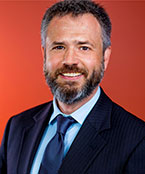
The puzzling piece is that Chicago has over the past decade seen almost no population growth —an estimated 0.8 percent since 2010, compared to 3.6 percent in Philadelphia. I would typically think that a better city economy is more of a magnet for population, leading to stronger population growth. And practically every city Philadelphia has played this season has had much higher population growth than our city, especially the Sunbelt cities.
So why has Chicago, which appears to have a stronger economy, grown at such a slower rate than Philadelphia? One answer is the Great Recession, which hit Chicago especially hard. Between 2009 and 2010 Chicago declined from a population of 2.855 million to 2.698 million—so it lost (net) about 157,000 people. By contrast, the period from 2009 to 2010 was precisely a point of one of the greatest estimated population increases in Philadelphia since 1950—the city went from a population of 1.468 to 1.528 million.
In terms of overall employment, Chicago has more firms in financial and related services, so it was hit harder than Philadelphia in terms of job loss (and there were more jobs to lose), which explains some of the population loss. The Chicago property market was also more overheated (and still is to some degree), so there were more likely more people who, once they lost their jobs, could no longer afford to live in the city. And the cost of living in Chicago outside of housing has probably increased somewhat more dramatically in Chicago than in Philadelphia, in part due to tax hikes as the city and state of Illinois attempt to deal with underfunded pension crises that are worse than in Philadelphia and Pennsylvania.
Consistent budget shortfalls led Chicago’s previous mayor, Richard M. Daley, into some dubious deals by which the city leased out public assets to private investors; most notoriously were the parking meters, which the city leased out for 75 years in a deal that appeared oddly favorable to the investors, who quickly jacked up the price of parking, which was charged through dysfunctional meters that apparently make the Philadelphia Parking Authority look like a model of efficiency and customer service. Pretty much everyone in the city admits that this was a terrible deal—including the city council members who fast-tracked it.
And speaking of Daley, it is worth noting the importance of one tiny difference between the two cities that has had a tremendous impact: The fact that we have term limits on our mayors while Chicago does not. There are other reasons beyond the absence of term limits that explain the absurd control the Daley family has exercised over the Chicago mayor’s office (Richard J. Daley served from 1955 to 1976 while his son, Richard M. served from 1989 to 2011), but if they had term limits obviously that family dynasty would have looked a lot different. And Chicago serves as an example that, if we did not have term limits, Rizzo may well have been mayor throughout the entire 1980s.
One final point: Both cities suck in terms of economic and racial segregation. This was reflected especially dramatically when Chicago’s murder rate soared in 2016, but those murders were concentrated in just a small handful of mostly poor neighborhoods. So, both cities score high in terms of diversity, but neither should be patting themselves on the back, since they are only diverse in the sense that different racial and ethnic groups live nominally in the same borders but essentially live in different worlds with very different levels of opportunities and advantages.

PhiladelphiaEagles |

ChicagoBears |
|
# of B Corps
25 |
# of B Corps
16 |
|
% Population with a BA
27.4 |
% Population with a BA
38.5 |
|
% Volunteers
26.5 |
% Volunteers
24.8 |
|
Violent Crime per 1000 people
9.9 |
Violent Crime per 1000 people
11 |
|
Diversity Rating
69.7 |
Diversity Rating
81.2 |
|
% People Bike to Work
2.2 |
% People Bike to Work
1.7 |
|
% Acres of Park Space
13.1 |
% Acres of Park Space
9.4 |
|
Public Transportation Score
67 |
Public Transportation Score
65 |
|
% Voters in Last Mayoral Election
24 |
% Voters in Last Mayoral Election
32.7 |


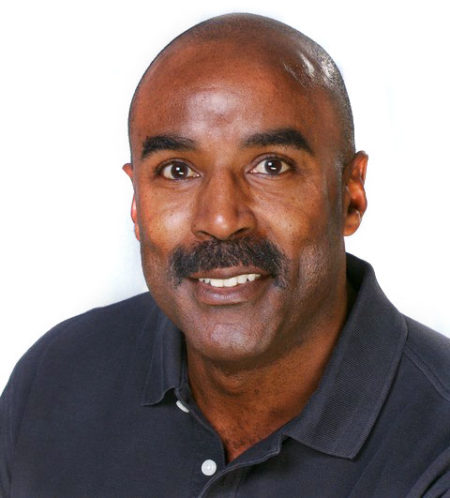
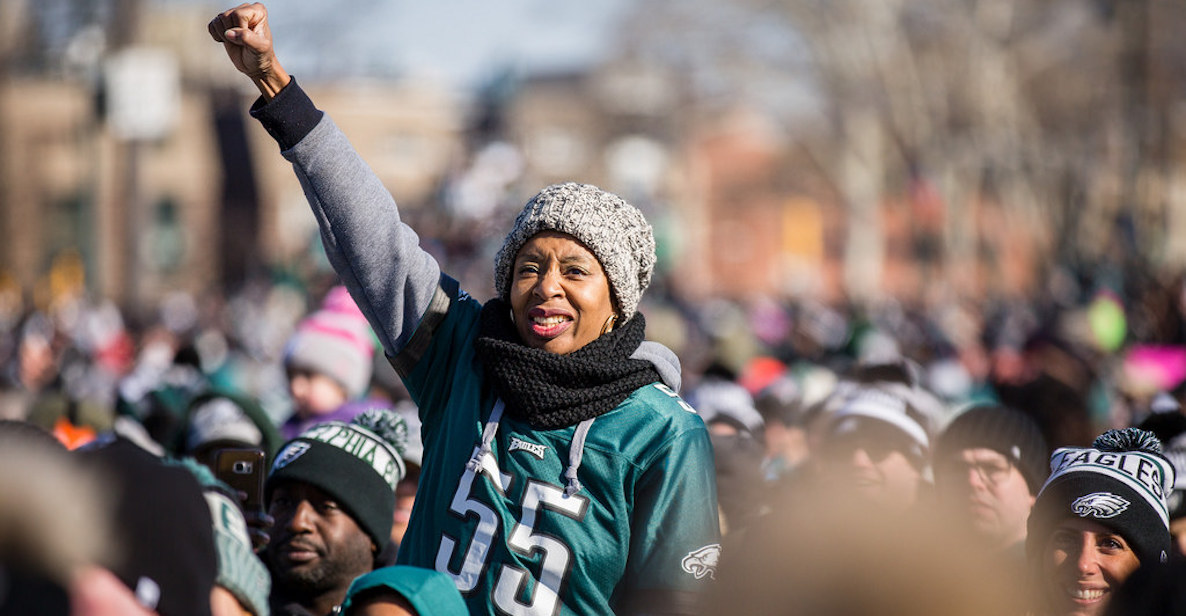
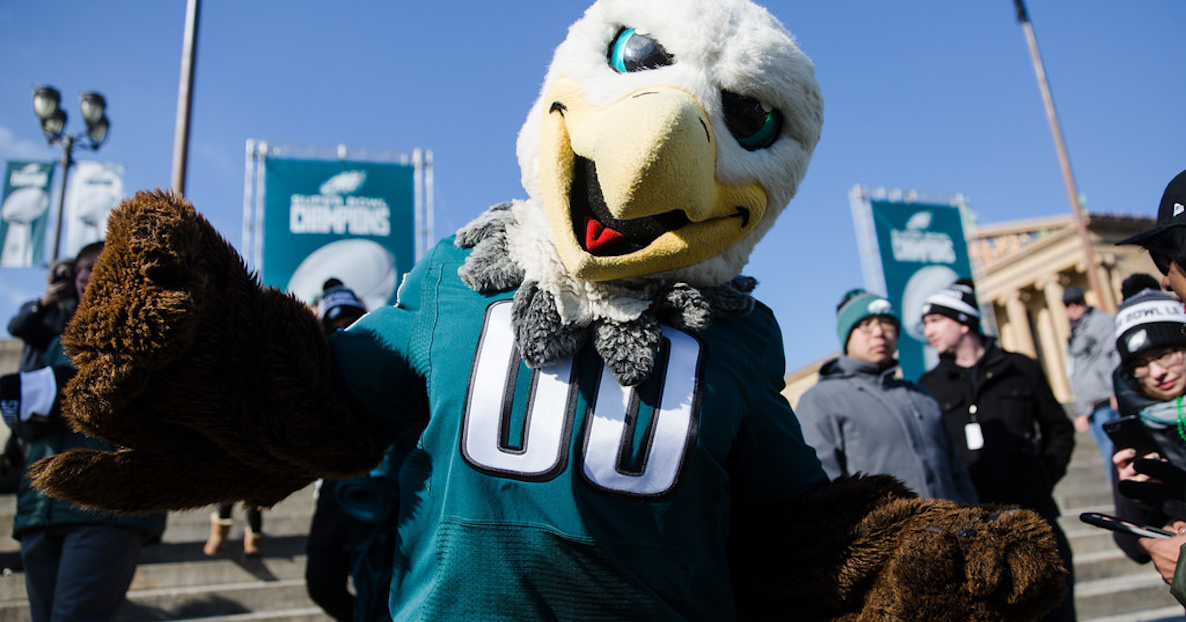


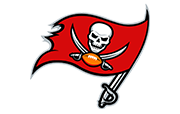









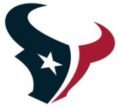

 Vikings
Vikings  Rams
Rams  Texans
Texans